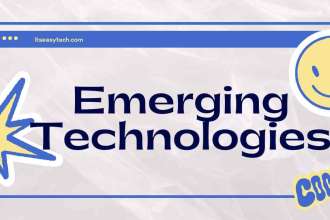In a world where connectivity knows no boundaries, the realms of Dungeons & Dragons (D&D) have transcended the confines of physical tabletops. Remote play has opened up a whole new dimension for D&D enthusiasts, allowing adventurers from around the globe to come together in virtual realms and embark on epic quests.
But does remotely playing Dungeons & Dragons have the same excitement as playing it in person? Today, we’ll be providing insights and tips to help you navigate and make remote play better than it was.
Understanding Dungeons & Dragons
For the newbies, Dungeons & Dragons is a tabletop role-playing game that takes players to an adventure in fantasy worlds unseen before. It was first published in 1974 and has since become a cultural phenomenon, captivating the imaginations of millions worldwide.
From North America to Asia, you can expect to find players wherever you are. They’re so popular that you can buy kits and merch from the most popular hobby store Australia or the US has to offer.
In D&D, players assume the roles of characters within a collaborative storytelling experience. One player takes on the role of the Dungeon Master (DM), becoming the campaign’s narrator and referee. They’re also in charge of the game’s story. Meanwhile, the other players create and control their unique characters, known as player characters (PCs).
The game unfolds through a combination of structured rules and improvisation. The DM sets the stage, describing the world, non-player characters (NPCs), and challenges the player characters will encounter. The players respond by making decisions and taking actions, often resolved by rolling dice to determine success or failure.
D&D is known for its flexibility and creativity. Players have the freedom to shape their characters’ backgrounds, abilities, and personalities, allowing for diverse and dynamic storytelling. The game encompasses various settings, from high fantasy realms of magic and dragons to futuristic science fiction worlds or even historical periods.
The core rulebooks, such as the Player’s Handbook, provide guidelines for character creation, combat, exploration, and interaction. However, the true essence of D&D lies in the collaborative nature of the game. Players work together using their character’s skills and abilities to overcome challenges and unravel intricate narratives.
Beyond the mechanics of the game, D&D fosters social connections, teamwork, and creativity. It encourages players to think critically, solve problems, and immerse themselves in richly detailed worlds. The shared experience of facing perilous quests, forming alliances, and making impactful choices creates memorable moments and lasting friendships.
How Can You Play D&D Remotely?
In recent years, the popularity of D&D has expanded beyond tabletop sessions. Remote play has opened up new opportunities for players to connect with friends, join online communities, and explore diverse gaming groups from the comfort of their homes.
Want to play D&D online? Here’s how you can do that:
Embracing Virtual Platforms
When it comes to remote D&D play, choosing the right virtual platform is paramount. Platforms such as Roll20, Fantasy Grounds, and Foundry VTT offer various features tailored for virtual tabletop experiences.
These platforms provide digital maps, character sheets, dice-rolling mechanics, and communication tools, ensuring a seamless and immersive gameplay experience. Familiarize yourself with the features of each platform to select the one that best suits your group’s needs.
Communication and Collaboration
Effective communication lies at the heart of remote D&D play. So, to ensure smooth interaction between players, leverage voice and video communication tools such as Discord, Zoom, or Google Meet.
These platforms facilitate real-time conversation, allowing players to engage in role-playing, strategizing, and maintaining the camaraderie that D&D is known for. Set up dedicated channels or rooms for different purposes, such as general chat, private conversations, or out-of-game discussions.
Virtual Dice and Character Sheets
In remote play, digital dice rollers are your trusty companions. Most virtual tabletop platforms have built-in dice-rolling mechanics, but you can also use external dice-rolling apps or websites for added convenience.
Additionally, ensure that everyone can access their character sheets in digital format. Tools like D&D Beyond and digital character sheet templates can be utilized to create, store, and manage character sheets online. This lets players easily track their abilities, inventory, and character progression.
Building Immersive Environments
Though you may not be physically gathered around a table, you can still create immersive environments for your D&D sessions. Use the virtual tabletop platform’s features to display dynamic maps, tokens, and atmospheric effects.
Enhance the experience by utilizing background music or ambient sound playlists to set the mood for different scenes. Additionally, consider sharing visual references or handouts via screen sharing or shared folders to provide visual cues and enrich the storytelling aspect of the game.
Adapting to Remote Gameplay
Remote play introduces unique dynamics that may require gameplay adjustments. Ensure that each player has a stable internet connection to minimize disruptions. Be mindful of potential audio delays or crosstalk, and allow for brief pauses to avoid talking over each other.
As a Dungeon Master, adapt your storytelling techniques to accommodate the virtual environment, utilizing descriptive language and engaging narration to transport players into a world that you’ve crafted.
Final Thoughts
Remote play has revolutionized the way we experience Dungeons & Dragons, transcending physical boundaries and bringing together adventurers from all corners of the world. With the tools mentioned above, you can embark on epic quests and weave unforgettable tales with your fellow players. So, gather your party, venture beyond the table, and let the virtual realms of D&D become your new frontier of adventure.












